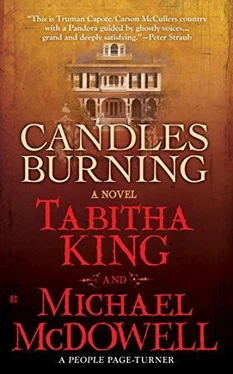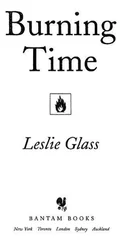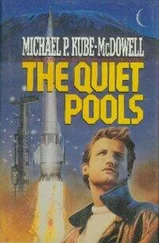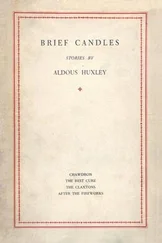“Calley Dakin, get down off that thing right this minute,” Mamadee cried. “What are you, a little heathen? Roberta Ann Carroll Dakin, you might have had the decency to buy the man a coffin!”
Mamadee thought anything that I was doing was bad so I wasn’t surprised to be found in the wrong yet again. I didn’t understand the rest of it because I was still ignorant of Judy and Janice’s footlocker.
Mama’s black veil hid her face but did not muffle or disguise the fury in her voice. “Mama, I am ashamed of you. You might have had the decency to spare me your ridiculous remarks. You know perfectly well that Joseph is in a mahogany coffin in the baggage car.”
Mamadee did. She just wanted to be sure that no one in the station was unaware of the notorious Widow Dakin and her children.
“You might try to act like a grieving widow, Roberta Ann,” Mamadee scolded.
“What would you know about that, Mama?”
Mamadee seemed to grow taller, like clouds rushing to build up to a tornado. I thought for an instant that she might change into something else, like the archangel driving Adam and Eve from Eden that I had seen once in a picture in a Bible. But she allowed herself to be distracted, pretending that it was necessary for her to oversee the stowing of our luggage in her Cadillac at the curb outside the train station.
A man in a black suit and white gloves, the mortician, was at the curb too, with a hearse backed up and open. He was someone I had seen before, amid the flowers and polish and the whispering of his funeral parlor.
The mortician hurried to Mama’s side, to press her hand between his and murmur consolations. We waited on the sidewalk while solemn porters wheeled out Daddy’s coffin on a metal flatbed rack. The metal device was all hinges and could be raised and lowered, so the coffin could be slid smoothly into the back of the hearse. Observing it, as it was moved, helped me avoid thinking about what was left of Daddy being jostled and disturbed inside the coffin. I didn’t really believe there was anything in it at all. The porters removed their hats to Mama and the mortician.
creaketycrumpetythumpety
The mortician again pressed Mama’s hand and bowed his head to Mamadee before he replaced his hat and hurried to take his place in the front seat of the hearse. A uniformed chauffeur, an elderly colored man who had been hauling white people to their white morgue and then to their white graveyard since Moses was bawling in the rushes, drove the hearse. He was a fixture, like so many of the colored people in our lives, indiscernible from his function.
Mamadee would drive only a white Cadillac, replacing it every three years. Mama had never said anything to her nor had Daddy ever remarked upon Mamadee’s automotive disloyalty but we were all aware of it. Her Cadillac always had standard shift because it was gospel that a standard saved gas. Driving a standard was just one of the ways Mamadee informed the rest of the world that she knew what was what. The only problem was that she had never really mastered it.
Once we were all in the Cadillac, Mama in the passenger seat and Ford and I in the backseat with the footlocker between us, Mamadee
grrrrreech
turned the key and
unk
jerked at the shift and stamped her feet on both the gas and brake pedals. The gears shrieked and the car jumped where it stood. Continued assault on the gearshift finally produced forward motion,
screepped
up over the curb and
unnka
down again
bunk
and onto the street.
“I have found this whole dreadful business humiliating in the extreme,” Mamadee said. “Nothing like this has ever happened to the Carrolls. How could you let it happen?”
We were already well versed in the indelible stain upon the Carroll reputation as Mamadee had expressed the same feelings repeatedly while she was in New Orleans with us. This time, Mama did not take it lying down. She had been waiting and scheming the whole time to get her own back someplace where nobody who mattered might be listening. Mama and Mamadee were in most ways just alike. Like magnets with the same polarities pointed at each other, they forced each other away.
“I did not let anything happen,” said Mama, each word slow and distinct. “Nobody asked me if they could kidnap Joseph, torture him, murder him, and then try to fit him in a footlocker that wasn’t big enough to hold him.”
This was the first mention of the other footlocker in my presence. Immediately I glanced at Ford. He was rigid, his face white—all the proof I needed that whatever she meant by torture and fitting Daddy into the footlocker was true. Ford had claimed earlier that Daddy had been butchered. Just the thought of the two women cutting off Daddy’s head and his limbs stunned me.
Before that moment, for me, torture meant talking when someone had a headache. Whenever Mama had a headache and I said two words within range of her hearing, she would cry out, “Calliope Carroll Dakin, you are torturing your mama!”
Because I had not known Daddy’s torso had been fitted somehow into a footlocker, I had no idea until then that it was identical to the one that contained the ransom. My imagination, however, was entirely adequate to the image of Daddy’s torso being crammed into the ransom footlocker. I could see myself crammed into a commensurately small space, immobilized, without light or air. An instant’s terror struck me breathless: Mama had made me sit with my feet up on that footlocker, with the key on the silk string around my neck, all the way back from New Orleans. But there was the unclaimed ransom, the coffin and the hearse, and Mama’s explicit statement to Mamadee that Daddy was in the coffin. And, of course, I was used to the outrageous assertions that were Mamadee’s stock in trade.
Mamadee barged right on. “If I had known this was going to happen, I would never have allowed you to marry that man. People are laughing, Roberta Ann, they are laughing, and it is hard for me not to laugh right along with them. To think that Joe Cane Dakin was murdered by the Fat Lady in the Circus.”
Mama was silent for a moment. She must have had thoughts along this line even before Mamadee brought it up. Forever after, for Mama, the dreadfulness of the business seemed to condense in that one peculiarity.
Calley, she’d say in that despairing tone that made you want to kill yourself and take a few close friends along with you, you know what the worst thing was? The worst thing was that woman weighed three hundred and ninety-seven pounds.
“You did not let me marry Joseph,” Mama said.
“I did my best to stop you.”
“I clearly remember you saying, ‘Roberta Ann, if you do not hog-tie Joe Cane Dakin, I will.’”
“Roberta Ann! That is a falsehood! I would never be so vulgar!”
“You always thought he was a country fool.”
“I never!”
“You kept right on buying Cadillacs. It was a deliberate insult to my late husband and I! Do you think either one of us mistook it for anything else?”
“You are distraught, Roberta Ann.” Mamadee spoke then in the reasonable tone she always took when she had driven someone to shrieking. “I am gone ignore every silly thing you have said.” Having arrived at a position of virtue, she changed the subject. “You have made plans for the funeral of course?”
“I thought I might be able to get out of these shoes first,” snapped Mama.
“Really, Roberta Ann, how coarse of you. Your son is listening. You ought to have the funeral somewhere near Joe Cane Dakin’s people.”
“Why?” Mama’s tone made it clear that she did not give a candle stub what the answer was.
Читать дальше












